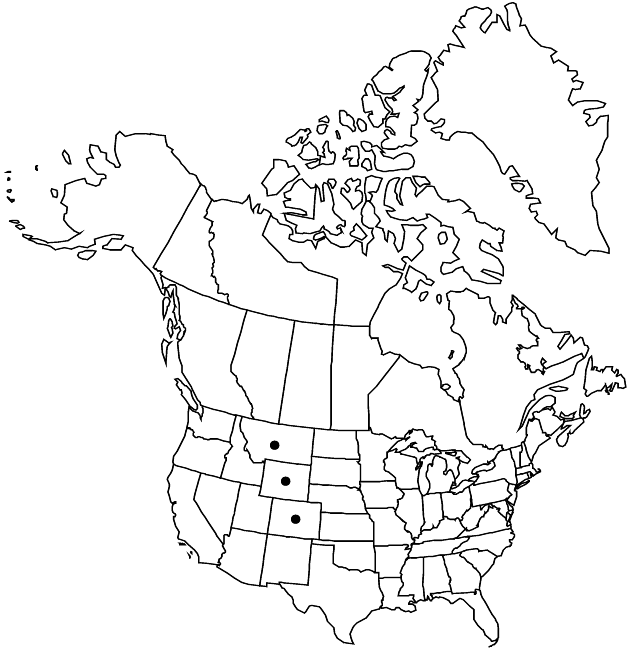Saussurea weberi
Svensk Bot. Tidskr. 53: 202, fig. 1. 1959.
Plants 5–22 cm; branched caudices. Stems usually simple. Leaves basal and cauline not much smaller distally, tapered to winged petioles 1–7 cm; blades elliptic or lanceolate to ovate, 2–8 cm, bases acute, margins entire or denticulate, apices acute, thinly tomentose when young, glabrescent, abaxially minutely resin-gland-dotted; distal cauline sessile. Heads 1–15 in condensed subcapitate arrays; (peduncles 0–1 cm). Involucres 10–12 mm. Phyllaries in 3–4 series, unequal, ovate to lanceolate, abaxial faces dark green and tinged dark purplish, long-pilose; tips of outer and mid phyllaries ± rounded. Receptacles scaly. Florets 9–10; corollas purple, 10–12 mm, tubes 4.5–6 mm, throats 1.5–2 mm, lobes 3.5–4 mm; anthers dark purple. Cypselae 3–5 mm; pappi of white or tawny, outer bristles 1–4 mm, inner 8–11 mm. 2n = 26.
Phenology: Flowering Jul–Aug.
Habitat: Gravelly alpine tundras, scree slopes
Elevation: 2800–5200 m
Distribution

Colo., Mont., Wyo.
Discussion
Saussurea weberi appears to be closely related to the S. angustifolia complex.
Selected References
None.